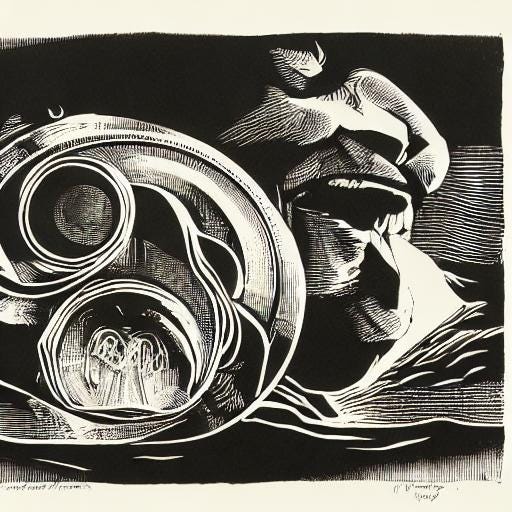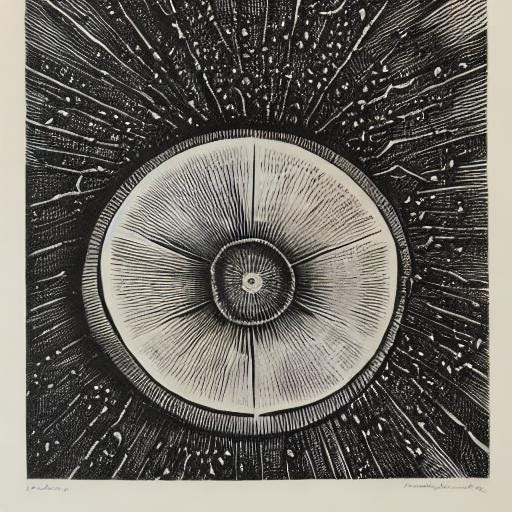When I was 16, my father’s extended family was much closer than they are today. This falling apart is something that happens with some families; kids grow up and get families of their own, grandparents die, and the extension fades away. Other families may remain close, but our family had circumstances that, as I see it, pulled them apart beyond the “kids growing up” piece (this falling apart is something I will cover in upcoming essays). However, during my early teenage life, and every stage before, we would find time to meet for holidays, birthdays, and any other occasion that called for a get-together. In May of 1991, we celebrated my father’s birthday and my cousin’s at their house, about an hour outside where our immediate family lived.
After the festivities were complete, and the presents were opened, we said our goodbyes and headed home. During the commute home, the rupture of my AVM occurred. Of course, there was confusion—no one knew what was happening to me. I was unresponsive, and couldn’t talk. My dad parked the car at a gas station as he and my mother were feverishly trying to grasp what was happening to me. After a frustrating few minutes, they realized that this was something bigger than they imagined. My mom went into the back seat to nurture me. My dad was unfamiliar with the town and wasn’t sure where the hospital was; he noticed a couple on their lawn and asked for directions. My head lay in my mother’s lap as I began to vomit on the car mat. We, at last, found the small hospital where we were pointed to. After getting checked in, I was looked over; my parents were told I should be sent to another hospital, a hospital that was better equipped for what I needed. They wheeled me outside to where a helicopter, a service that was just in its infancy, was to take me there. My dad asked if he could ride along, but they told him they didn’t permit parents to do that as they didn’t want the parents to come unglued if their child were to die en route.
One of my uncles volunteered to clean up our car. My aunt, who was a nurse, advocated for me as she tried to sort through the confusion. Another uncle volunteered to drive my parents to the hospital; the new destination. As the helicopter took off, it would take me 10 minutes to reach the destination, and it would take my parents 45 minutes.
Years later, I spoke with my parents about what emotions were felt. My dad told me this:
“Mom and I were sitting close to each other in the back seat like we were dating. It was a long, hard ride. We never knew if we’d see you again or not. We didn’t know, at that point, anything except that it was severe and nobody knew anything that was going on, except the doctor said he was bleeding on the brain. Not a lot was said. Everybody was just deep in thought, and thinking about you.”
Sometimes I feel as if my dad should be a poet. That first line harbors a classic use of contradiction. When something meaningless happens to one of his own, he still searches for the brightness at that moment. And isn’t this true of us all? Why does it take something so conclusive to make us feel closer and more genuine? Something where all tensions have wound themselves so tightly that when it finally breaks, that tension we once felt, that tension was something that allowed us to realize we were living, despite the anxiety, it is now gone, and there may be no hope of getting it back. Is it simply that we are witnessing what mortality is, so we see each other in that new light?
There’s a famous Stoic saying: memento mori. Which means, remember death. Live each day like it’s your last—we’ve all seen memes portraying as much. But do we fully grasp the meaning of those words? Do we (big-L) Live, or do we just get by?
I now live just under a mile from the hospital. When I take my dog out for a walk, I can see the top two or three floors in the distance, just above a tree line. I can see the landing pad where the helicopter sits. My parents said they could remember the children’s hospital being built right outside the window, just beyond the bed where I lay. When I worked inside as a nurse tech, I could remember hearing the helicopter landing; hearing the blades cut through the air; shunk, shunk, shunk—how many traumas were brought in per week? How much news is never reported because too much news is too much redundancy?
William Shakespeare had a line in his play Macbeth, a poem where he examines the pointlessness of life. These lines were brought to life for me in the movie Birdman; I can feel the passion as an unknown actor screams it towards the heavens:
Tomorrow, and tomorrow, and tomorrow,
Creeps in this petty pace from day to day,
To the last syllable of recorded time;
And all our yesterdays have lighted fools
The way to dusty death. Out, out, brief candle!
Life's but a walking shadow, a poor player,
That struts and frets his hour upon the stage,
And then is heard no more. It is a tale
Told by an idiot, full of sound and fury,
Signifying nothing.
Maybe witnessing that one day, yes, we will, every one of us, die. Perhaps this will bring us closer to a life worth living. And in that temporary moment of sorrow, my father sat close to my mother, like they were dating. That is what life is; when we see our mortality and realize how naked we are if we never scream these words to the heavens, I Live!




